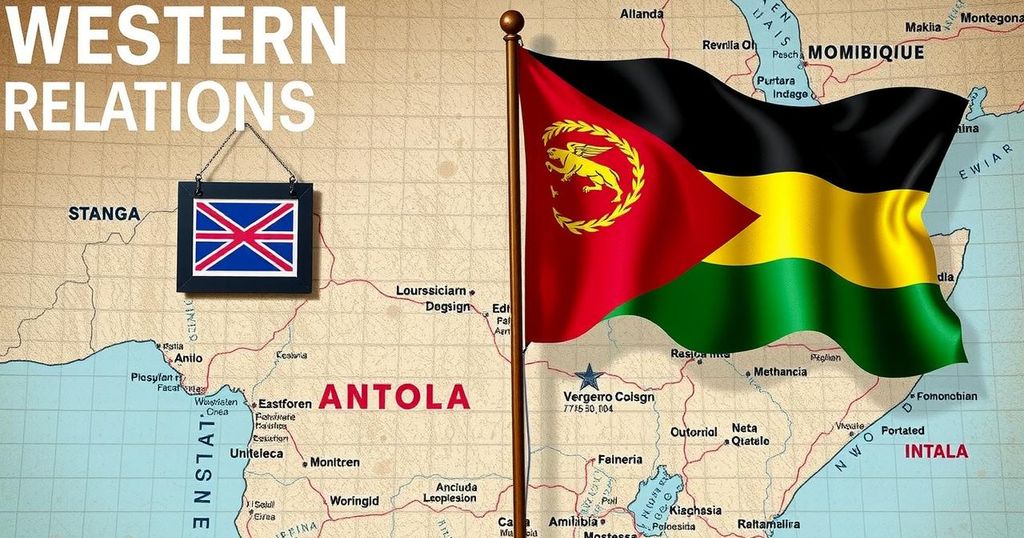The West’s Strategic Shortcomings in Angola and Mozambique’s Democracies

The article critiques the West’s strategic prioritization over democratic principles in Angola and Mozambique, particularly amid allegations of electoral fraud. It highlights the consequences of neglecting democratic values for resource extraction benefits, emphasizing the need for legitimate elections and genuine engagement with local governance issues. Without these measures, the West risks entrenching undemocratic regimes and alienating ordinary citizens.
In Angola and Mozambique, the West’s approach to governance reflects a troubling preference for strategic alliances over democratic principles. Following his meeting with President Joe Biden, Angolan President João Lourenço has leveraged this newfound status as a global leader while trying to mask the undemocratic spectral underpinnings of his regime. With the international community aiming for infrastructural investment in Angola, there’s a palpable negligence towards electoral integrity in both Angola and Mozambique. Reports indicate that elections in these nations have been marred by significant rigging and irregularities, raising concerns over the validity of the governance structures in place.
The situation in Mozambique has drawn particular criticism following the Frelimo party’s questionable electoral performance, garnering over 70% of votes, which observers contest as fraudulent. Yet, rather than advocate for legitimate governance, international players have opted for silence or tacit approval, pointing to a geopolitical strategy that seems to prioritize resource extraction over democratic integrity. As the West navigates its relationship with authoritarian regimes, the focus appears to fall on reinforcing existing power structures rather than fostering true democratic progress.
Yet, true democratic engagement must not be forsaken in favor of temporary stability. Fresh elections conducive to a legitimate outcome are vital for nourishing the democratic landscape in these regions. Unfortunately, the West’s tendency to use stability as a justification for tolerating undemocratic practices undermines the potential for genuine reform. This approach not only alienates the populace but also propounds an image of Western duplicity in its advocacy for democracy abroad while neglecting the realities on the ground.
The legitimacy of governance in countries like Angola and Mozambique has come under scrutiny amid allegations of election rigging and undemocratic practices. While external nations, particularly Western democracies, seek alliances for mutual benefit—especially in resource-rich contexts—the fundamental issues surrounding democratic integrity remain conspicuously overlooked. Historical norms dictated that democratic nations would vocalize their disapproval of undemocratic elections; however, present dynamics exhibit a shift in focus towards strategic conveniences, prioritizing resource extraction over support for actual democratic governance.
The West’s neglect of genuine democratic principles in Angola and Mozambique reveals a troubling trend of compromising on values for strategic interests. The evident irregularities in electoral processes highlight the need for fresh, legitimate elections supervised by independent bodies. Without such measures, the international community risks perpetuating systems that prioritize the elites at the expense of ordinary citizens, ultimately undermining both regional stability and the credibility of Western democratic ideals.
Original Source: www.thebrenthurstfoundation.org







